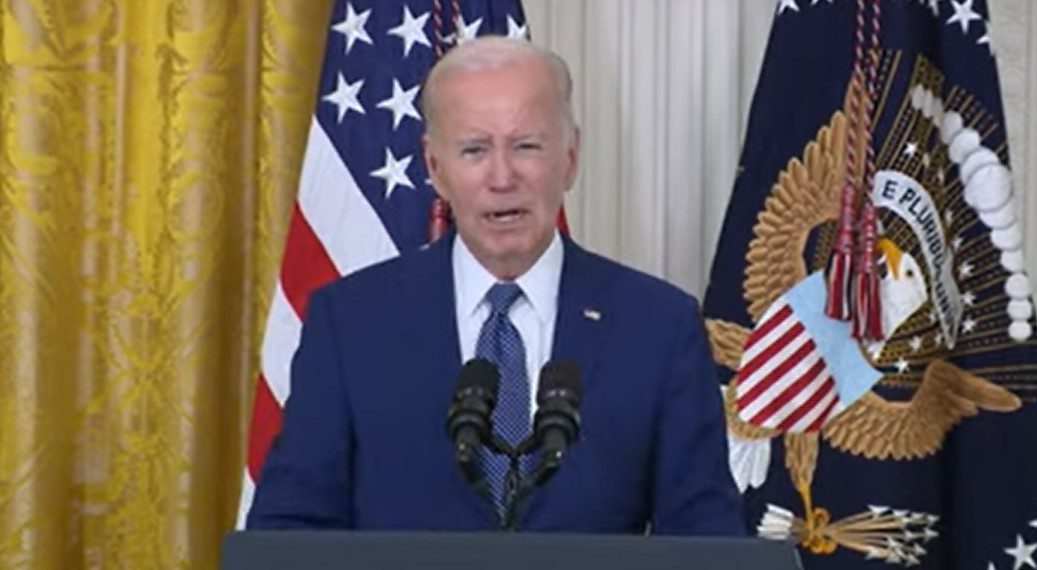White House Announces BEAD Allocations to the States
Randy Sukow
|

The Biden Administration announced the next stage in the Broadband Equity, Access, and Deployment (BEAD) Program. The Department of Commerce’s National Telecommunications and Information Administration (NTIA) has allocated the program’s $42 billion into dollar amounts to states and territories to distribute to broadband projects. State governments will now work with NTIA, local governments and internet providers with the goal of 100 percent internet connectivity by 2030.
“What we’re doing is not unlike what Franklin Delano Roosevelt did when he brought electricity to nearly every American home and farm in our nation,” President Joe Biden said during a press briefing at the White House. The BEAD announcement is “an equally historic investment to connect everyone in America to high-speed Internet – affordable high-speed Internet – by 2030. It’s the biggest investment in high-speed internet ever,” he said.
However, Teresa Ferguson, senior director, Broadband and Infrastructure Funding, warns that BEAD’s process raises some concerns. “My biggest concern is the compressed timeline the NTIA is setting for the states to develop and execute on the BEAD state allocations,” she said. States must conduct stakeholder outreach and solicit feedback on their policies. They must develop grant programs and map challenge processes within 180 days. Once the states have NTIA program approvals, they must run competitive grant application cycles to select subgrantees.
“I think many states were hoping to run two or three BEAD-funded application cycles given this is likely the largest amount of broadband funding their offices have administered. However, the 12-month final proposal deadline the NTIA established doesn’t realistically accommodate multiple grant cycles,” Ferguson said. “The country is asking state broadband leaders across the county to take on a monumental task, and in my opinion, they should be given a more realistic timeline to run their state grant cycles so they can do it well, not simply fast.”
With as much pressure as the BEAD program places on state governments, NRTC members should be assured that the BEAD process leaves them time to analyze the funding opportunities and prepare applications. “Our members are getting a heads up that they can comment on the state’s BEAD program guidelines and map challenge process over the next six months. NTIA will likely take another two or three months to review and approve the state’s BEAD grant programs,” she said.
Ferguson goes into greater detail on NRTC members’ next steps in the latest NRTC TechTalk video. She offers advice for those seeking support from BEAD and other programs. Members should continue their grant-readiness preparations. “Being grant-ready means understanding the programs, knowing the players and stakeholders, and speaking with your community, getting support from your community anchor institutions,” she says. It will also mean members familiarizing themselves with the important state-level offices and individuals, she said.
The Allocations
A list of all state and territory allocations appears on the NTIA site. The total comes to $41.6 billion. Texas will receive the most support by a wide margin with more than $3 billion allocated. The top-10 allocations are:
| Texas | $3,312,616,455.45 |
| California | $1,864,136,508.93 |
| Missouri | $1,736,302,708.39 |
| Michigan | $1,559,362,479.29 |
| North Carolina | $1,532,999,481.15 |
| Virginia | $1,481,489,572.87 |
| Alabama | $1,401,221,901.77 |
| Louisiana | $1,355,554,552.94 |
| Georgia | $1,307,214,371.30 |
| Washington | $1,227,742,066.30 |
NTIA used the FCC’s recently refined National Broadband Map as the basis for the allocation decisions. States will likely use the map for future funding decisions as the FCC continues to refine its data.
Both Biden and Vice President Kamala Harris estimated that there are 24 million Americans who currently do not have internet services, either because it is not available or because they cannot afford it. According to a statement from the White House briefing room, broadband funding will be a major theme of an “Investing in America” tour for in coming weeks by President Biden, Vice President Harris, First Lady Jill Biden and other senior officials.
NTIA made the BEAD announcement at the end of a month that has seen several developments in broadband funding. Among them:
- NTIA announced $903 million in funding through the Enabling Middle Mile Broadband Infrastructure Program. The middle mile is the length of communications transport between local internet providers and national backbone fiber networks’ access points. Those connection charges are often costly for rural broadband providers. “Much like how the interstate highway system connected every community in America to regional and national systems of highways, this program will help us connect communities across the country to regional and national networks that provide quality, affordable high-speed Internet access,” Commerce Secretary Gina Raimondo said in a press release. The funding will go toward middle-mile projects in 35 states and Puerto Rico.
- FCC Chairwoman Jessica Rosenworcel has distributed a draft order that would require many telecommunications companies receiving universal service to provide all subscribers with speeds of 100/20 Mbps or greater. The order would apply to those receiving USF funding through the Enhanced Alternative Connect America Cost Model (A-CAM). Rosenworcel described the proposal as complementary to BEAD. In addition, she announced a plan to fund Wi-Fi connectivity on schools buses through the USF Schools & Libraries (E-Rate) program during a recent speech to the American Library Association.
- Congress currently is debating the latest “Farm Bill,” which could include additional funding for the U.S. Department of Agriculture’s ReConnect broadband funding program. ReConnect offers loans, grants and combination loan/grants for qualifying rural broadband projects. A bipartisan group of House members recently introduced the ReConnecting Rural America Act, which would make ReConnect a permanent program. According to a press release from Rep. Zach Nunn (R-IA), NRECA backs the bill. It quotes Louis Finkel, NRECA senior VP, Government Relations, saying, that the bill would “provide the tools and flexibilities necessary for rural providers to meet the unique challenges of building lasting broadband networks in rural areas.”


